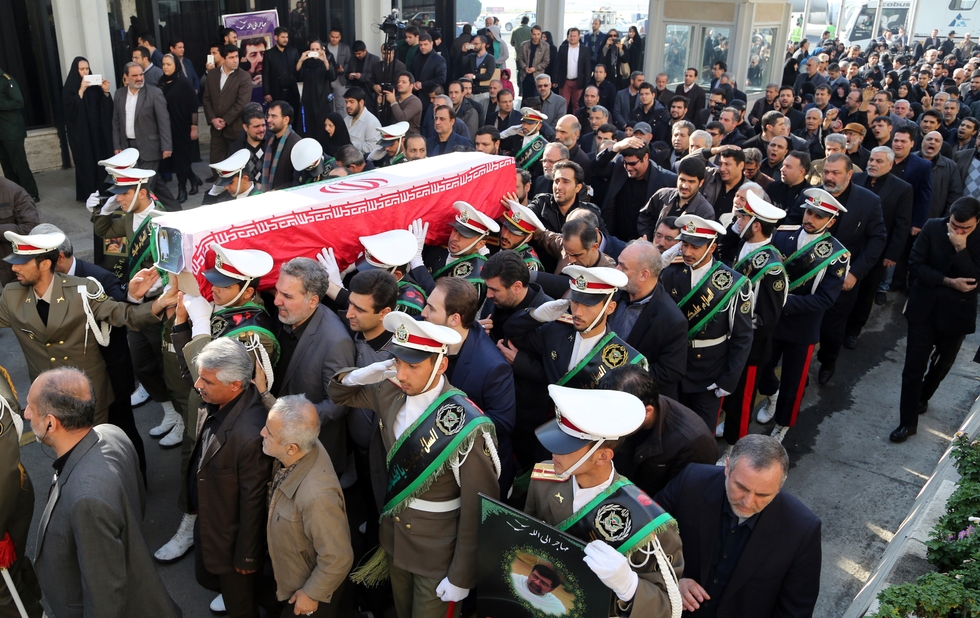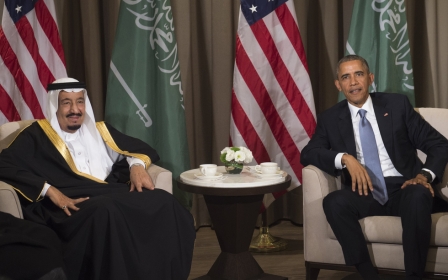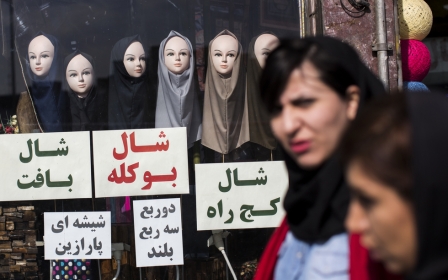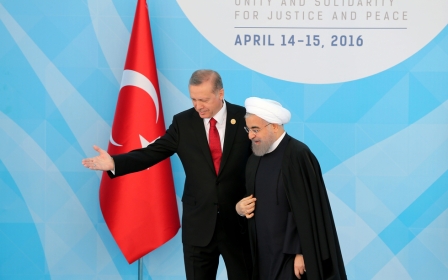Iran-Saudi hajj talks halted because of visa hurdle

Talks between regional rivals Iran and Saudi Arabia on this year's hajj pilgrimage have stalled because of a disagreement on how visas can be processed in the absence of formal diplomatic relations.
An Iranian delegation last week travelled to Saudi Arabia, which cut ties in January, for discussions on the pilgrimage to the Muslim holy places in the kingdom.
Said Ohadi, head of the Iranian Hajj Organisation, said on state television late on Monday that four days of negotiations had achieved progress on security issues and travel to the kingdom.
But the lack of a functioning Saudi embassy in Tehran - both it and the kingdom's mission in Iran's second city Mashhad are closed - means there are currently no visas being issued to Iranians.
"The problem of visa issuance has not been solved yet," said Ohadi. "Saudi Arabia has not yet offered a clear solution."
In the absence of any Iranian representation, Switzerland looks after Iran's interests in the Saudi kingdom.
Iran wants visas to be issued inside the Islamic republic.
Ohadi said the foreign ministry had offered to provide "all means necessary" to help Saudi Arabia do so but he did not explain how it could be done in the absence of an embassy or consulate.
The Iranian delegation was expected back in Tehran later on Tuesday.
Saudi Arabia severed diplomatic ties with Iran on 3 January after its diplomatic missions in Tehran and Mashhad were stormed and set alight by mobs following Riyadh's execution of a prominent Shia cleric and activist, Nimr al-Nimr.
But Ohadi said Saudi Arabia had agreed that Iranian aircraft could land for the hajj, an exception since all flights from the Islamic republic were barred after the diplomatic crisis.
Security was another contentious issue in the talks, after a massive stampede in last year's hajj killed more than 2,000 foreign pilgrims, including 464 Iranians.
"The Saudis offered good solutions on security," introducing electronic tracking bracelets for all hajj participants, Ohadi said.
This year's pilgrimage to Mecca - a trip that all Muslims who are able to are expected to perform at least once in their lifetime - is due to take place in September.
New MEE newsletter: Jerusalem Dispatch
Sign up to get the latest insights and analysis on Israel-Palestine, alongside Turkey Unpacked and other MEE newsletters
Middle East Eye delivers independent and unrivalled coverage and analysis of the Middle East, North Africa and beyond. To learn more about republishing this content and the associated fees, please fill out this form. More about MEE can be found here.




